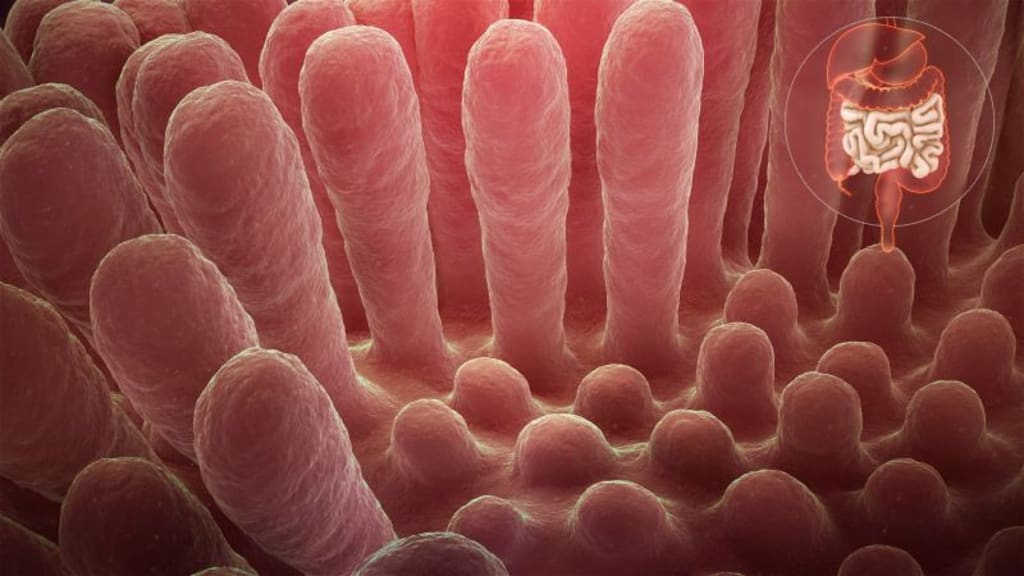Content warning
This story may contain sensitive material or discuss topics that some readers may find distressing. Reader discretion is advised. The views and opinions expressed in this story are those of the author and do not necessarily reflect the official policy or position of Vocal.
CELIAC DISEASE
CAUSES, SYMPTOMS AND TREATMENT OPTIONS

Celiac disease is an autoimmune disorder in which ingesting gluten, a protein found in wheat, barley, and rye, triggers an immune response that damages the small intestine’s lining. This damage hinders nutrient absorption and can lead to various symptoms, including diarrhoea, abdominal pain, fatigue, and skin rashes. The body starts producing antibodies for protection. As a result, the small intestine gets inflamed and doesn’t function as it should. The disease leads to damage of the villi, a lining protecting the small intestine, and hence, the organ cannot absorb essential nutrients required for complete nourishment of the body.
Causes of Celiac Disease
Genetic Disease- Celiac disease is caused by DQ2 and DQ8 genes. The presence of any one gene among these increases the chances of an individual getting affected by the disease. If these genes are present in any one of the individual’s parents, the possibility of passing on the genes is also high. Hence, hierarchical issues are also one of the major causes of the disease.
Gastroenteritis– An intestinal bug found in the childhood years of an individual layer creates the possibility of an individual getting affected by the disease. The bug disturbs the digestive system of an individual and gets triggered by the consumption of gluten. The issue can be handled with the help of vaccination and allow the small intestine to function correctly.
Type 1 Diabetes– Another cause of the disease is type 1 diabetes. People with type 1 diabetes are at a higher risk of getting affected by this disease as both diseases are autoimmune diseases. The disease is found in approximately 4 to 9% of children having type 1 diabetes. Hence, maintaining a healthy lifestyle can help to manage the damaging signs of both diseases.
Down Syndrome– Down syndrome is considered to be a risk factor for the disease. People who have Down syndrome have a 5-10% chance of having the signs of the disease. Hence, people with Down syndrome should get a medical test for celiac disease done to identify the damaging signs in its initial stages.
Gluten consumption- The consumption of gluten-containing grains such as wheat, barley, and rye is a primary trigger for celiac disease in genetically susceptible individuals.
Autoimmune response- When individuals with a genetic predisposition consume gluten, their immune system mistakenly targets and damages the lining of the small intestine.
Environmental factors- Certain viral infections, gastrointestinal infections, or events that disrupt the gut microbiome may play a role in triggering celiac disease in genetically susceptible individuals.
Symptoms of Celiac Disease
Bloating- One of the most prominent and most identifiable celiac disease symptoms is bloating. The affected individual feels bloated and feels heavier most of the time in a day. It happens due to improper absorption of nutrients by the small intestine. The seams are more significant than on regular days, making one uncomfortable for social reasons.
Weight Loss– Another significant symptom of the disease is weight loss. It happens due to improper absorption of nutrients by the small intestine, leading to malnutrition and other similar issues. In extreme weight loss, one should consult a doctor to tap the root cause and begin the medication immediately.
Abdominal Pain– Abdominal pain is also one of the damaging symptoms of the disease. Gas, bloating, cramps, and other similar issues can also accompany the pain. In case of such signs, it is advised to seek professional medical help.
Constipation– One more symptom that helps to identify the disease immediately is constipation. It happens due to the consumption of gluten, making the individual feel abdominal pain and bloated. Including fibre in the diet gradually, along with high hydration, is the first line of treatment to cure the symptom.
Treatment Options for Celiac Disease
Gluten-Free Diet- One of the significant and necessary steps to lower the signs of the disease is a gluten-free diet. It helps to lower the inflammation of the small intestine and allows one to heal quickly. Foods such as wheat, barley, rye, bulgur, durum, malt, semolina, and other grains should be avoided as they contain gluten that can damage the small intestine of people with celiac disease.
Vitamin Supplements– Vitamin supplements are helpful for people who suffer from anaemia due to the disease. Supplements such as copper, folic acid, vitamin D, and zinc help to lower the signs of anaemia.
Medications- In rare instances where a strict gluten-free diet is not effective or there is ongoing symptom management, medications such as corticosteroids or immune-suppressing drugs may be considered. However, these are typically used as a last resort.
About the Creator
Abdullahi Alabi
I am Abdullahi by name. An expert writer with numerous years of experience. I have established myself as a prominent figure in the world of writing.
Enjoyed the story? Support the Creator.
Subscribe for free to receive all their stories in your feed. You could also pledge your support or give them a one-off tip, letting them know you appreciate their work.





Comments (1)
Hello, AI is permitted on Vocal. It is a Vocal policy that content created with AI is identified as such at the start of the story/article. Your article/story has many hallmarks of AI-assisted/generated content. You can find the details of the Vocal policy here: https://vocal.media/resources/an-update-from-vocal-on-ai-generated-content, Please amend your piece to be in compliance.